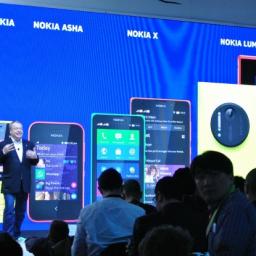It's long been the case that the world of Linux distributions offers at least one compelling choice for virtually every taste and purpose, but -- much like those dissatisfied with the weather in New England -- users who don't see a distro they like need only wait a few minutes. The open source nature of Linux means that users not only can fork and create entirely new distros of their own at will, but also take advantage of others' efforts to do so -- and those efforts are ongoing.
What makes one distro last and another give up?
Linux Insider takes a closer look.
An article in
Power Magazine discusses how manufacturers of power generating equipment are planning to use 3D printing in metal for production of complex machinery parts:
Siemens announced in December that it would begin using 3D printing - also known as additive manufacturing - to produce replacement burner components for gas turbines rather than using conventional methods. It said that for certain types of turbines, repair times can be cut by as much as 90%.
Meanwhile, GE Aviation announced that it would contract with Swedish company Arcam to produce 3D-printed components for its jet engines. Its oil and gas division plans to start pilot production of 3D-printed gas turbines fuel nozzles later this year. With conventional manufacturing methods, the nozzles are assembled from 20 separate parts, but with 3D printing, they can be created in a single piece.
NASA used similar methods previously to manufacture parts for the J2-X engine, according to this article at
Extreme Tech . So, how far will this technology spread? How long will it be before consumer-oriented metal objects are being printed just-in-time at your local department store?

At the Mobile World Congress, soon-to-be-Microsoft
Nokia announced three devices running Android. It seems these are Nokia's gateway drugs for Windows Phone, using a similar look and feel as Windows Phone while having the underpinnings of the
Android Open Source Project. From ZDNet: According to Nokia head (Steve Elop), while it may not involve a Microsoft OS, the Android-based X family will serve to bring more users to the company in emerging markets. The X family will be "a feeder system for Lumia," he said, and "gives people a gateway" to Microsoft's Windows Phone products.
Will this help MS-Nokia with emerging markets? Or will this be orphaned after Microsoft fully takes control?

